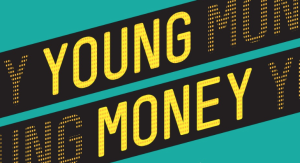When I went to college I had no conception of the ‘recruiting process’ that ambitious undergrads have to pursue the next level of success. I thought bankers were people who helped me open a deposit account, what’s the big deal? But, by junior year, I got it. Just by going to recruiting events, I was enamored by the allure of “tackling complex problems” with very smart people while being compensated “generously“. Most of all, I felt that a career in that direction, working for a big preferably finance or consulting company would be viewed by my peers as a continuation of a successful life. That didn’t happen but I still wonder what could have been.
That’s why I was drawn to Kevin Roose’s Young Money: Inside the Hidden World of Wall Street’s Post-Crash Recruits, (Grand Central Publishing, 2014). Truth is, despite many of my peers going into and currently working deep in front-office finance it was still somewhat of a black box to me. What did they do day-to-day? Are the horror stories I’ve been hearing just a massive (and unhealthy) humblebrag? Finally, I hoped to have an answer.
Young Money is structured into a narrative of the 8 young financiers interwoven with commentary about various aspects of the financial services industry and humorous retellings of the author’s own awkward forays into the more visible aspects of that lifestyle. It reads easy (I finished it in less a week), the characters are likable and themes of the amorality of Wall Street (side tangent: “amorality” instead of “immoral” is more apt here. Roose has a memorable line, and I’m paraphrasing here, mentioning that if Wall Street could make more profit with the same amount of risk as shaving pennies from financial transactions as distributing vaccinations in developing countries, they’d do it) and the uncertainty most 20 year-olds face while thinking of about the rest of their lives is hammered throughout the book.
Perhaps being that age and having friends made me desensitized to some of the problems that the analysts face. Yes, working the “banker’s 9-5” (both A.M) is terrible, yes, doing work on the weekend jeopardizes relationships with your friends and significant others and yes, ordering take out food from Seamless and sitting for hours on end will probably affect your health adversely. None of that is particularly insightful.
However, Roose does touch upon some of the more interesting aspects of the culture. I was intrigued by some of the ways recruiters look for young analysts by offering vague descriptions of what their life may be like or how certain educational institutions seem to encourage students going into the industry. Roose also mentions how money can change people over time in a particularly memorable detailing a Wall Street fraternity event for the people who have made it. I would have love to read more about each topic with research to back up his statements but the book, perhaps purposefully so, focuses more on the anecdotal experience of the 8 people he chose to follow.
Ultimately, I feel like I got a sanitized version of the rants on Wall Street Oasis when I wanted something more like The Big Short which I felt was more a narrative on the system the individuals who made it.
Watch more:
The Daily Show – Kevin Roose Interview
Also:
Slate – Mad Men Season 7 Preview
Washington Post – The Attorney General, a Republican Senator and Asparagus.
CBC – Trevor Linden is back with the Canucks!
